SPOTLIGHT IN-DEPTH
Clinic staff attitudes, bureaucratic crises among highlighted reasons for missed TB targets in Northern Cape
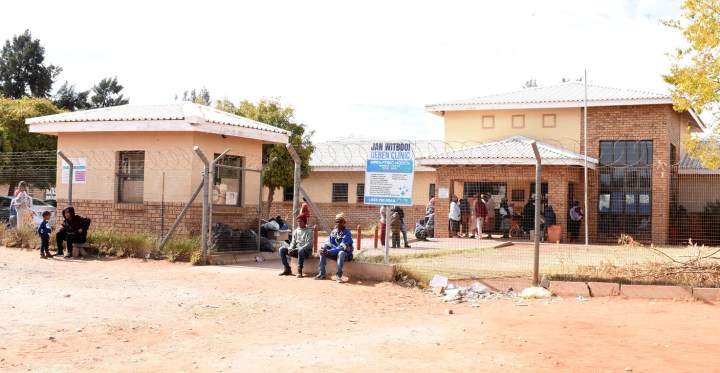
In March this year, the director-general of the Northern Cape government, Justice Bekebeke during a parliamentary oversight visit acknowledged that about 80% of the health facilities in the province did not meet their performance targets of finding people with tuberculosis and helping them complete treatment. Refilwe Mochoari looked at the statistics and spoke to several roleplayers about why the province is missing its TB targets.
Albert Molutsi is a tuberculosis (TB) survivor who lives in Gasehunelo in the predominantly rural JT Gaetsewe District in the Northern Cape. He tells Spotlight he depends on a disability grant.
The JT Gaetsewe District — one of five districts in the province — is among the worst-performing districts in the province’s TB programme, as highlighted in the provincial department’s latest annual report and its third quarterly report.
Molutsi says he is not surprised that the district is not performing well on TB services as he relays his own experience. He was diagnosed with TB of the knee and spine in 2018 and says he did not experience any of the normal TB symptoms such as coughing, weight loss, or night sweats. However, his challenge was with his joints. He could not walk properly and his spine was always in pain.
Explaining this type of TB, Professor Gladys Kigozi, Associate Professor at the Centre for Health Systems Research and Development at the University of the Free State says TB organisms typically affect the lungs, however, sometimes the organisms will move outside the lungs through the circulatory system or lymphatic system to other parts of the body including the knee (joint TB) or spine TB or pott’s disease.
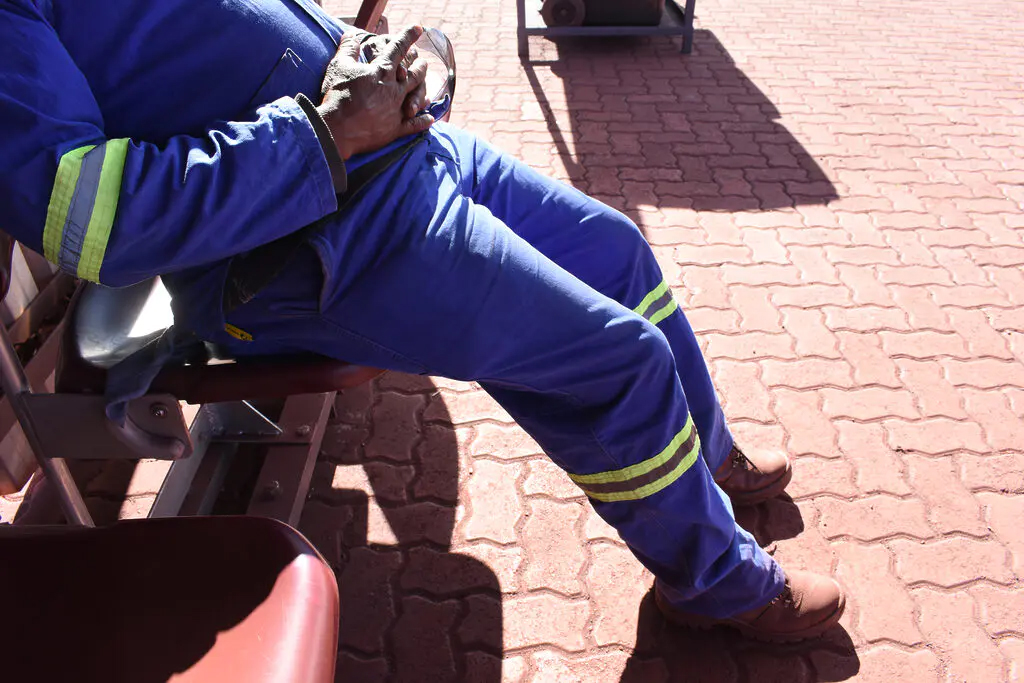
A miner relaxes in the warm sun after his night shift at Sishen mine. (Photo: Emile Hendricks/Spotlight)
“I started by going to the Gasehunelo Clinic, Seoding Clinic, Kuruman District Hospital, and Tshwaragano Hospital,” says Molutsi. “And all I received was painkillers. For about six months I was in and out of clinics and hospitals in the Northern Cape, but they kept taking my sputum, which always came back negative and only gave me painkillers. Then I decided to travel to Taung (a town in the North West) about 200 kilometres away from where I live. When I arrived at a clinic in Taung, I was struggling to walk properly as the TB had severely affected my knees and my spine. I was immediately referred to Klerksdorp Hospital for X-rays and that is when it was discovered that I have knee and spine TB,” he says.
“For 18 months,” Molutsi says, “I was spending R450 per month on transportation costs to get my TB treatment in another province. The worst part is that I was not even getting a disability grant yet.”
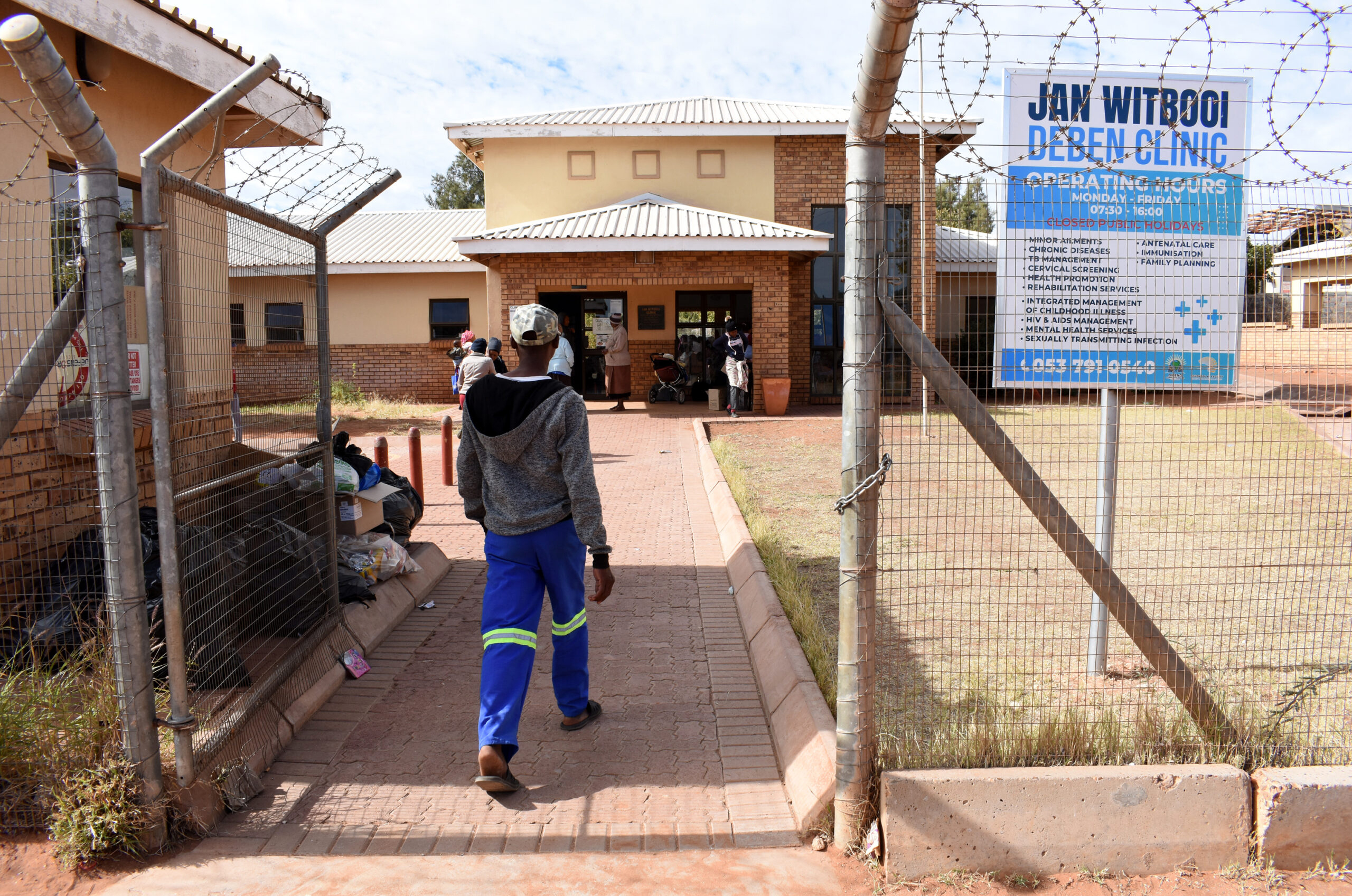
About 80% of the health facilities in the Northern Cape did not meet their performance targets of finding people with tuberculosis and helping them complete treatment. (Photo: Emile Hendriks/Spotlight)
Missing targets
In March this year, the director-general of the Northern Cape government, Justice Bekebeke during a parliamentary oversight visit acknowledged that about 80% of the health facilities in the province did not meet their TB performance targets of finding TB cases and ensuring successful (completed) treatment.
This is also flagged in the department’s latest annual report for the 2021/2022 financial year tabled in the provincial legislature, which shows the province had underperformed in diagnosing TB patients and in its TB treatment success rate. According to the report, “often patients, after two months of treatment, start to feel better and then they abscond”. The high loss to follow-up rate impacts the treatment success rate in the province, as people then do not complete treatment. The TB treatment success rate for the JT Gaetsewe District, where Molutsi is from, the annual report shows, dipped as low as 50%.
The annual report, however, gives a glimpse of some other challenges underlying this underperformance. Among these are that “linkage to care is still not functional at some facilities” and there are still challenges with data management systems, as some facilities do not do daily capturing as required,” the report states. This is mostly because many facilities also do not have data clerks. At times, the challenges are due to bureaucratic loopholes, for example, “the slow progress on approval submission” when a TB Tracer leader has to procure a vehicle. The province is mostly rural and distances between towns can be vast.
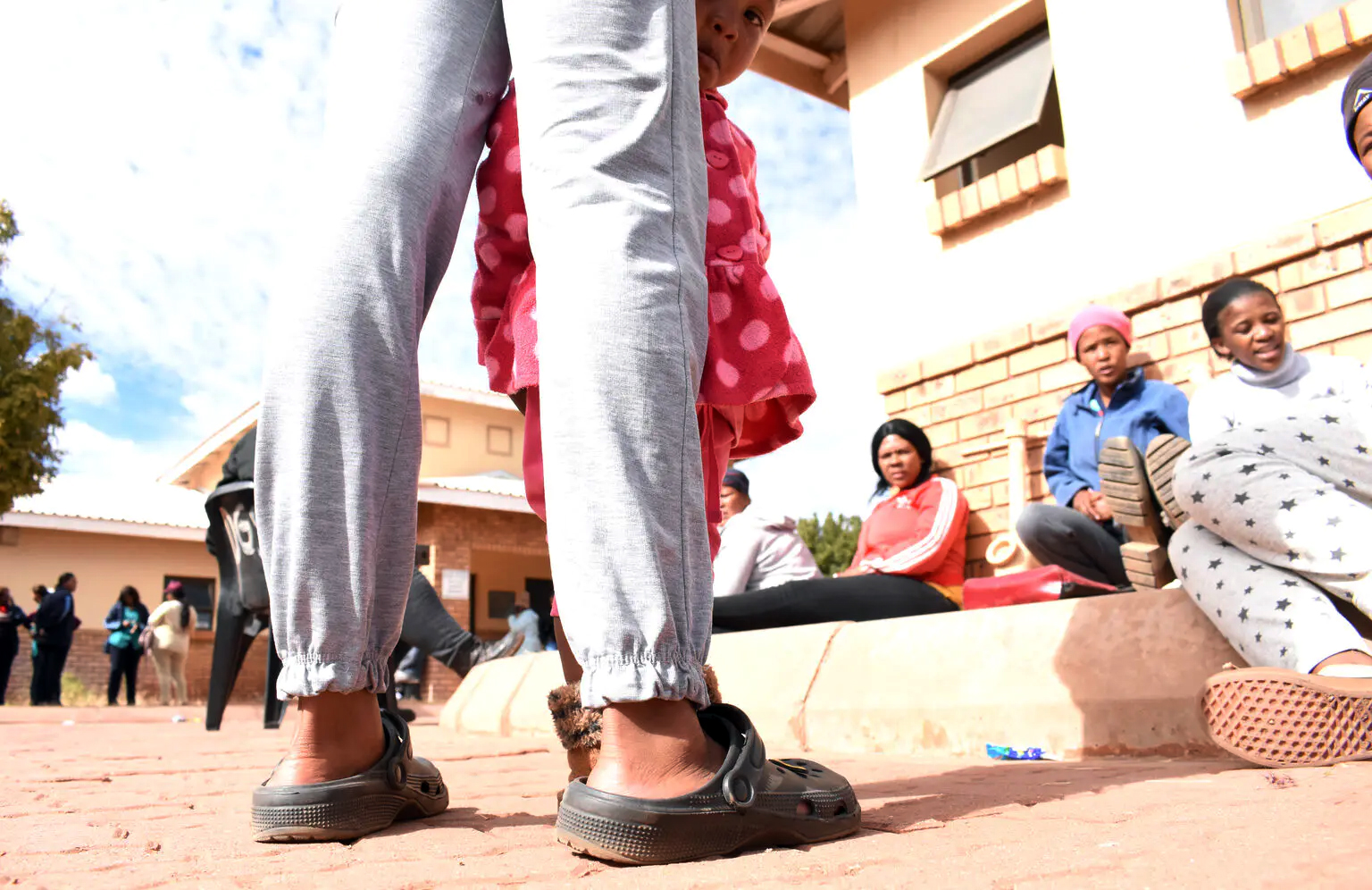
Four out of the five districts in the Northern Cape did not meet their targets relating to TB case-finding and TB treatment success in the third quarter of the 2022/2023 financial year. (Phto: Emile Hendricks/Spotlight)
A closer look at the department’s latest tabled quarterly performance report for the 2022/2023 financial year, shows that four out of the five districts did not meet their targets relating to TB case-finding and TB treatment success in the third quarter (ending November 2022). The JT Gaetsewe District was among those that missed its targets.
For example, in terms of treatment success, overall, the programme achieved 63% in the third quarter up from 62% in the second quarter — the target is 80%. Four of the province’s five districts failed to reach the target, with JT Gaetsewe District achieving a 66% treatment success rate. This means only two in three of those started on treatment, have completed the treatment in this district. The Namakwa District was the only district to reach the 80% target, whereas Francis Baard dipped from 62% in the second quarter to 59% in the third quarter, and JF Mcgawu District clocked 65%, down from 67% in the second quarter.
The provincial health department in response to Spotlight earlier this month, said that the province “experienced a significant increase in TB screening year on year moving from 75.6% of cases diagnosed for 2021 to 87.6% for 2022, albeit [still] below the target of 90%”. The department said this is due to “a sharp increase in screening in the Frances Baard District (from 60.5% to 84.4%) and the JT Gaetsewe District from 79.6% to 92.2%”.
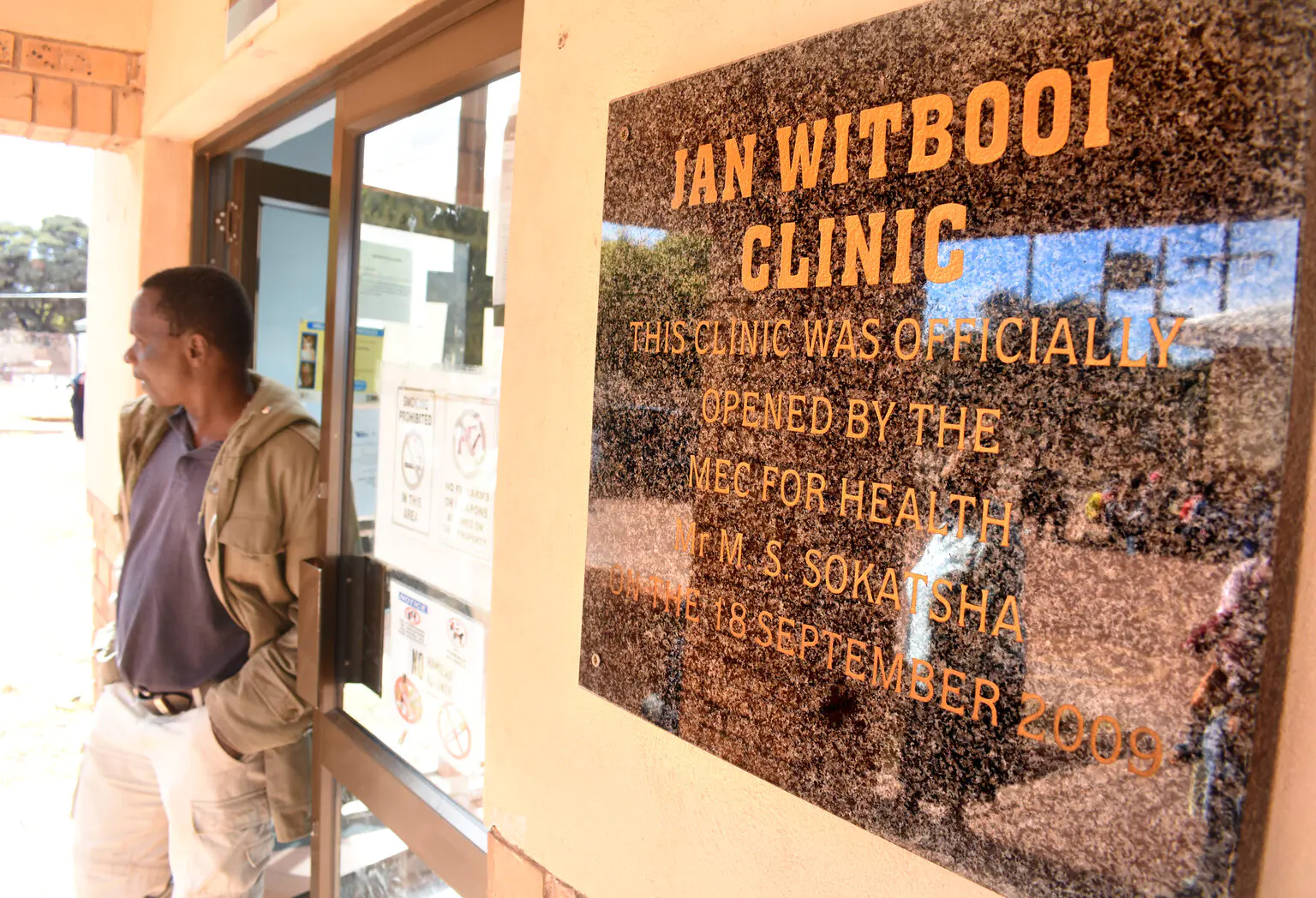
The Jan Witbooi Clinic was opened in 2009. (Photo: Emile Hendricks/Spotlight)
Staff attitudes
Spotlight spoke to community health workers at the Jan Witbooi Clinic in Debeng township in Kathu who work with TB patients in the community to get an idea of what may drive the underperformance.
Lerato Thulo* has been a CHW for eight years at the Jan Witbooi Clinic and she says some TB patients interrupt treatment because of the staff’s attitudes at the clinic.
Another CHW, Mpho Molapo* agrees that often community members are suffering at the hands of clinic staff who are supposed to take care of them. “Our TB patients here at Jan Witbooi often do not complete their treatment and I think that is why our district has a high rate of people who do not complete their treatment,” she says. “It is our duty as community health workers to go out to the communities and look for these patients. Sometimes we find them and they agree to come back, but sometimes they just refuse to come back until they start falling sick again,” she says.
Staff attitudes have been cited across provinces — where the community-led clinic monitoring project, Ritshidze does monitoring — as factors that influence healthcare users’ treatment adherence. Although the Northern Cape is not part of this project, it may well have similar problems with staff attitudes.
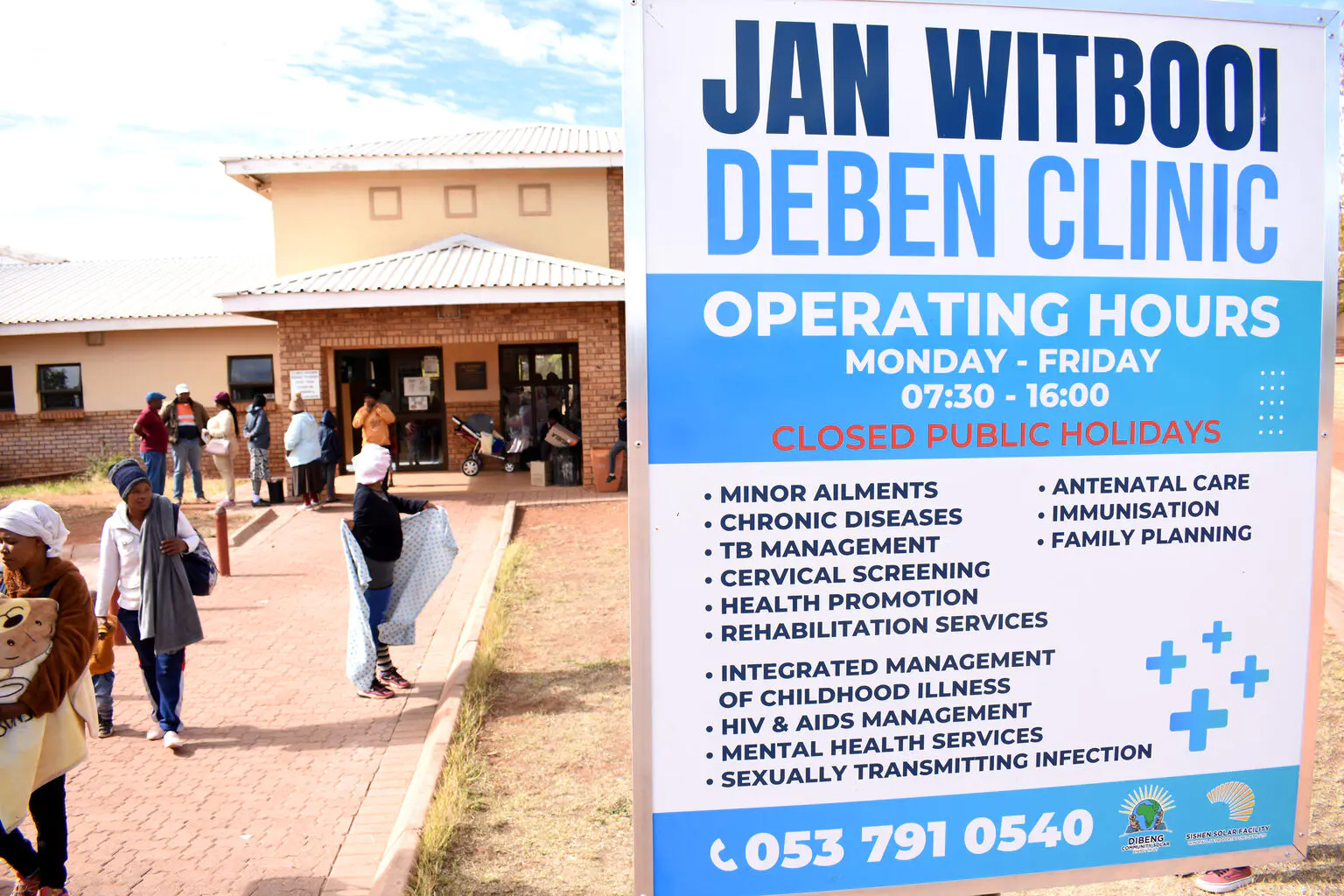
The clinic also provides TB services, although the community complains about staff attitudes. (Photo: Emile Hendricks/Spotlight)
Mining and occupational TB
In the JT Gaetsewe District mining and agriculture are the dominant commercial activities.
And according to Kigozi, working and living in a mining environment exposes individuals to respiratory hazards that can adversely affect the lungs. She says drilling activities inside the mines generate significant amounts of dust, which, if inhaled, may cause irritation, inflammation, and lung damage.
“Prolonged exposure to silica dust can lead to a condition called silicosis, which affects the lungs and weakens the immune system, increasing the risk of TB disease and outside the mines, most miners live in poorly ventilated areas such as hostels and informal settlements, which facilitate TB transmission,” she says.

Anglo American’s Sishen mine in Kathu. (Photo: Emile Hendricks/Spotlight)
But according to Dr Eugene Ramabolai, the Superintendent of Health and Wellness at Anglo American’s Sishen mine, the mining company plays a critical role in fighting TB in the surrounding communities. In an interview with Spotlight Ramabolai says they take TB very seriously as a mine and monitor it closely.
“It is simply because we are mining iron ore and with iron ore there is too much silica dust. But TB is not only acquired through silica dust. It is also a community-acquired infection in some villages and informal settlements where a number of our employees and contractors reside. Last year,” he said, “we had less than 10 cases of TB at the Sishen mine and this year, so far, we have less than five and none of these cases are occupational.” He said when they find a TB case, they send a team of investigators to determine where the TB was acquired. “And I can confirm that all our TB cases between last year and this year were community-acquired cases. So as a mine, we are doing very well with occupational TB.
“We know TB exists in the community but that is beyond our control,” Ramabolai says, “however we have partnered with a primary healthcare service provider called UGM Clinic. Through this partnership, we are able to run campaigns and empower and educate both employees and the community about TB — sending out the message that TB is curable.”
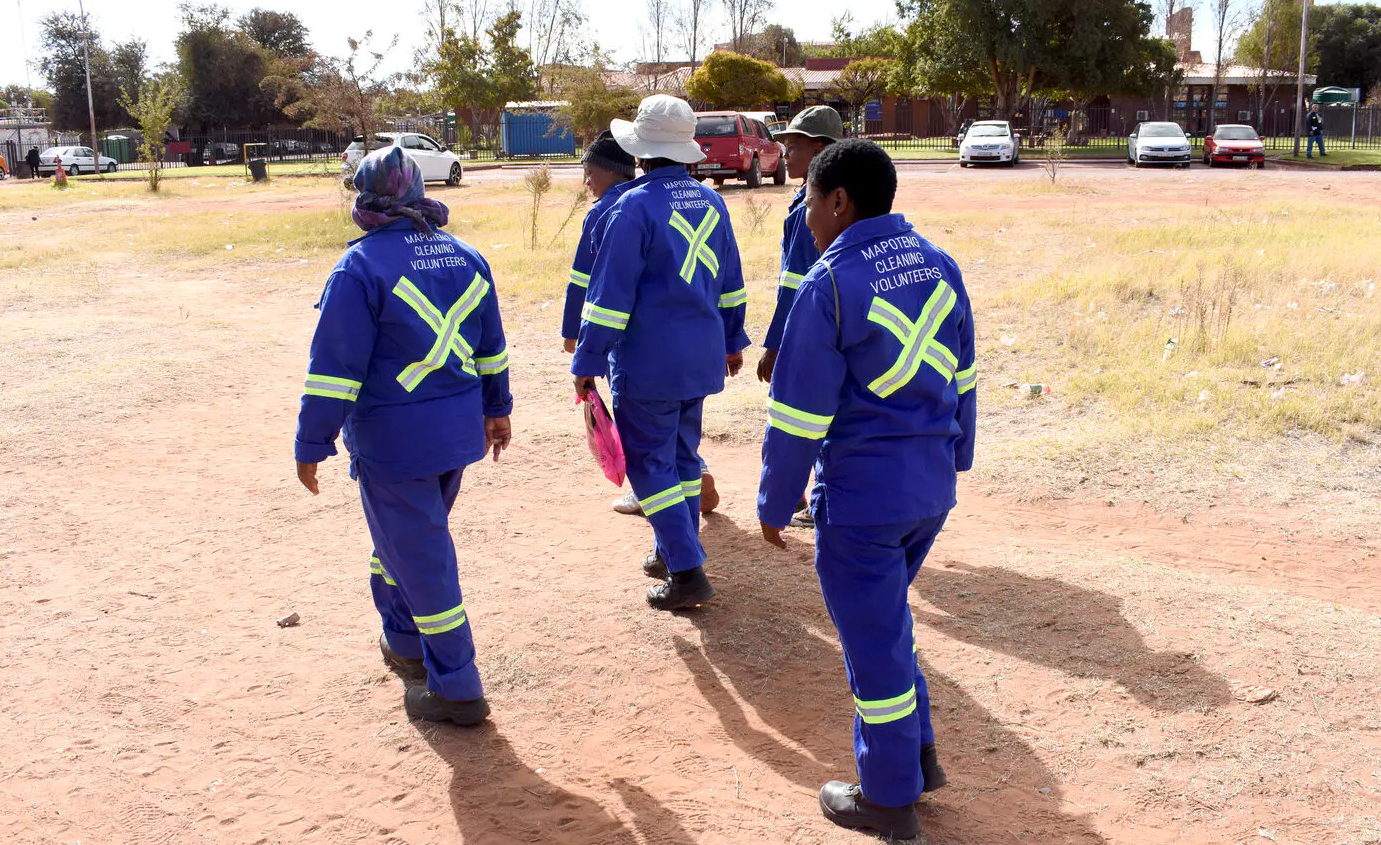
Working and living in a mining environment exposes individuals to respiratory hazards that can adversely affect the lungs. (Photo: Emile Hendricks/Spotlight)
He says they do regular TB screenings on our employees and in our community. “And where TB is detected, through our partnership with the Department of Health patients are initiated on treatment and we follow up until they finished treatment and are cured. This programme is also extended to the community.”
Since they work with a lot of silica dust, he says they have put engineering measures in place to suppress the silica dust to protect employees. “The shift work that we have put in place is also a way for the mine to reduce the amount of silica dust they are exposed to. We give all our employees personal protective equipment for their protection, so the measures that we have put in place are quite effective,” he says.
Put resources toward TB efforts
According to activists who advocate for better TB and HIV services, the Northern Cape government “continues to fail people” no matter how hard they try with TB programmes.
Patricia Makate from the National Association of People Living with HIV (PLHIV) in JT Gaetsewe says TB in their district is a serious problem and they have limited resources to support government.
“Our members are mostly employed in the mines,” she says, “and they live in overcrowded informal settlements. We have a challenge of poverty, too many immigrants, and unemployment in our district. We play a big role in reaching all those people to teach them how they can protect themselves from TB and the importance of taking treatment. But our resources are not enough,” she says.
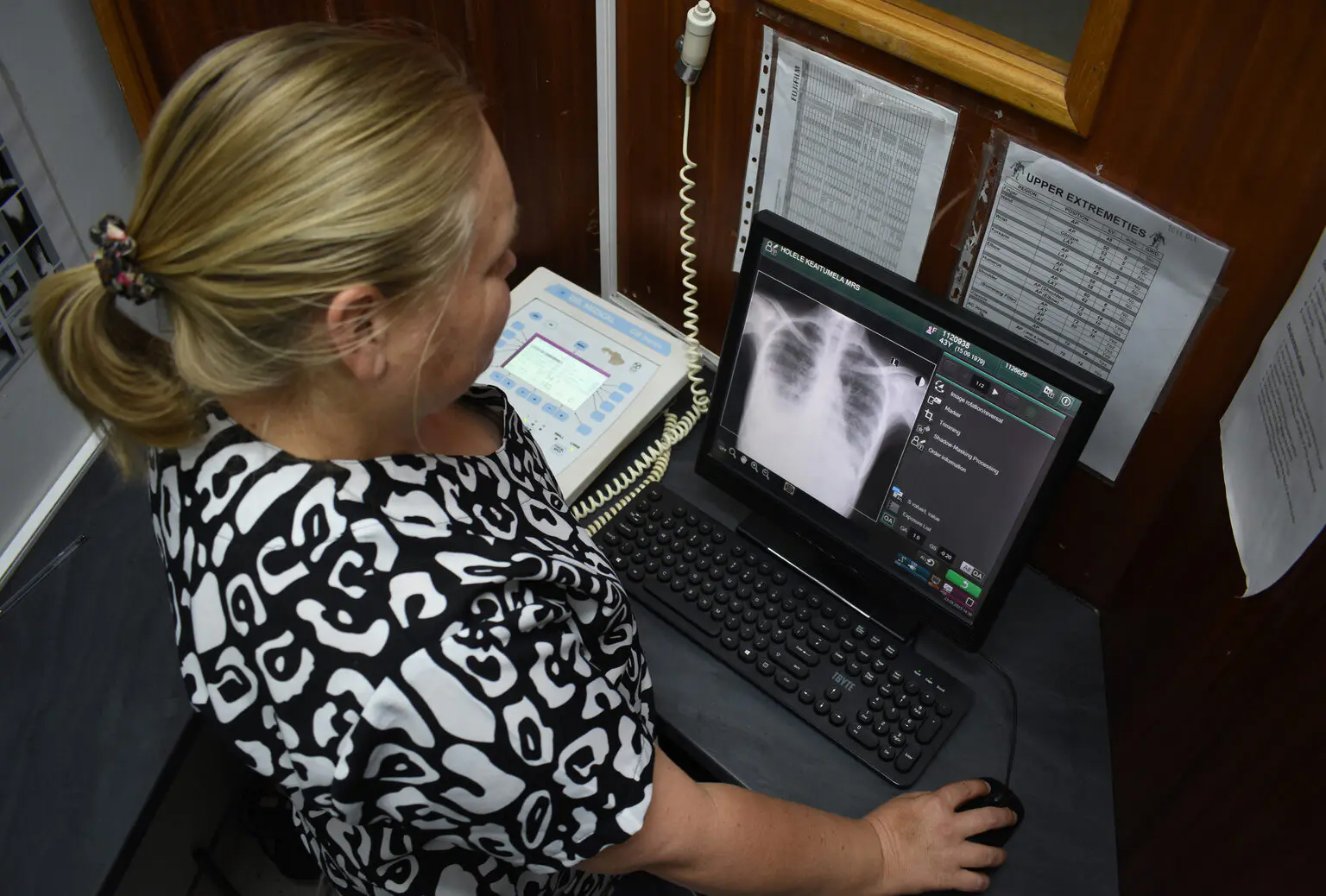
Radiographer in Kathu, Anelle Burden displays a Xray of a patient’s lungs who has miliary TB. (Photo: Emile Hendricks/Spotlight)
Teboho Cross from the community organisation Guardian Angel says their organisation does awareness campaigns on TB and HIV in Frances Baard and JT Gaetsewe districts. “But we need government and private sector, especially the mining companies to help us with funding. We all have the same goal and vision and that is to end TB,” he says. Cross said the Northern Cape is performing badly with their TB programmes and “that is a shame because TB is curable, but we are losing lives.
Planned interventions
Among the planned interventions the department outlined in its annual report and the quarterly report, are training healthcare workers in basic HIV and TB management. According to the annual report, 108 nurses were trained. Clinical programme coordinators and TB programme managers also received training on the updated 3HP guidelines, and 15 nurses also received training. To address the high loss to follow-up rate, the department undertook “quality improvement visits” to poor-performing facilities and implemented treatment adherence strategies, mainly counselling and follow-ups on missed appointments. In its response to Spotlight, the department stressed the support visits and engagement they have in underperforming areas. “Outcomes vary at different districts and the support visits will assist in accelerating improved outcomes,” the department says in the response.

The road to Kathu. (Photo: Emile Hendricks/Spotlight)
In terms of budget, the province has set aside R626.5-million over the medium term for the provincial department of health to address HIV and TB backlogs, among others. “This includes R200.7-million in the next financial year for the health department to deal with the service backlogs in respect of ART and TB and baseline adjustments for goods and services including medicine,” the provincial budget statement shows.
Spotlight sent follow-up questions to the director of TB programmes in the Northern Cape Vincent Blaar. Blaar failed to respond to questions on why the department is struggling to meet its TB targets, a request to outline how the province plans to intervene, and questions regarding the context surrounding the various statistics. DM
*Identities withheld since some healthcare workers face repercussions when speaking to the media and community healthcare workers tend to have particularly precarious employment conditions.
This article was published by Spotlight – health journalism in the public interest.






















 Become an Insider
Become an Insider
Comments - Please login in order to comment.